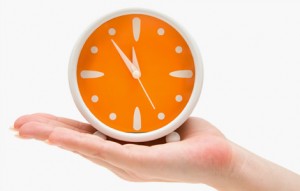Blog
Break Free From Habitual Breaks
 Welcome to yet another Monday. We know that this isn’t everyone’s favourite day of the week, so we figured we’d try to inject a little bit of energy into your day to get it off to a good start. A few weeks back, we offered up a number of tips on how to make your Monday merry. However, we are still very aware that, for many workers, all they can think of this morning is getting to their first breaks.
Welcome to yet another Monday. We know that this isn’t everyone’s favourite day of the week, so we figured we’d try to inject a little bit of energy into your day to get it off to a good start. A few weeks back, we offered up a number of tips on how to make your Monday merry. However, we are still very aware that, for many workers, all they can think of this morning is getting to their first breaks.
So let’s talk about breaks, shall we? It’s important to get the most out of your breaks at work. After all, the whole intent is to re-energize yourself for the rest of your work day. The problem with going on break sometimes, is that it simply provides a spot in your day to complain about work along with the rest of your co-workers. That negative energy can’t be very helpful.
On WorkAwesome.com, Andre Kibbe writes that the types of breaks that you take should be appropriate to the type of work you are doing. For example, “a clerk in a copy store can probably work two or three times as long as a writer without needing a break. A construction worker may only be able to optimally work half as long.”
With that said, there should also be a specific purpose in mind for each break you take. What would you prefer to do with each break you take? This is important to consider since breaks are generally not that long. The average break from work is about fifteen minutes in length. And for some, it feels like fifteen seconds!
So what do you want to do with that time? Rest, eat, play a game, run an errand or have a conversation? Kibbe writes that “finding yourself” is one of the worst things you can do on break. He feels that “placeholder” activities like snacking or reading a newspaper or magazine fill time poorly and often cause workers to return to their jobs with less energy.
But why is that? Many people enjoy reading and snacking during their breaks, right? Kibbe insists that breaks should be planned. Or to be more specific, the purpose of your breaks should be planned. Do you need restoration? He suggests grabbing a stress ball and going for a walk. Do you need nourishment? Pick up something healthy to eat rather than hitting a junk food-filled vending machine.
Breaks, by the way, don’t have to ritualistically the same time lengths each day. Although most employers frown upon this, you may want to consider what to do with those 2-3 minute breaks that are necessary here and there. Sometimes to re-establish your concentration, says Kibbe, you need to regroup after a 30-minute meeting before going straight back to work.
Sometimes our minds wander when we are sitting at our desks for too long. Try getting up from your desk and stretching every so often. Kibbe also suggests you keep drinks off of your workstation. This will encourage you to get up out of your seat more often to get a drink and hopefully consume less in the process. And one last tip for your breaks, invest in fresh air instead of Facebook! (Unless it’s our page…)
